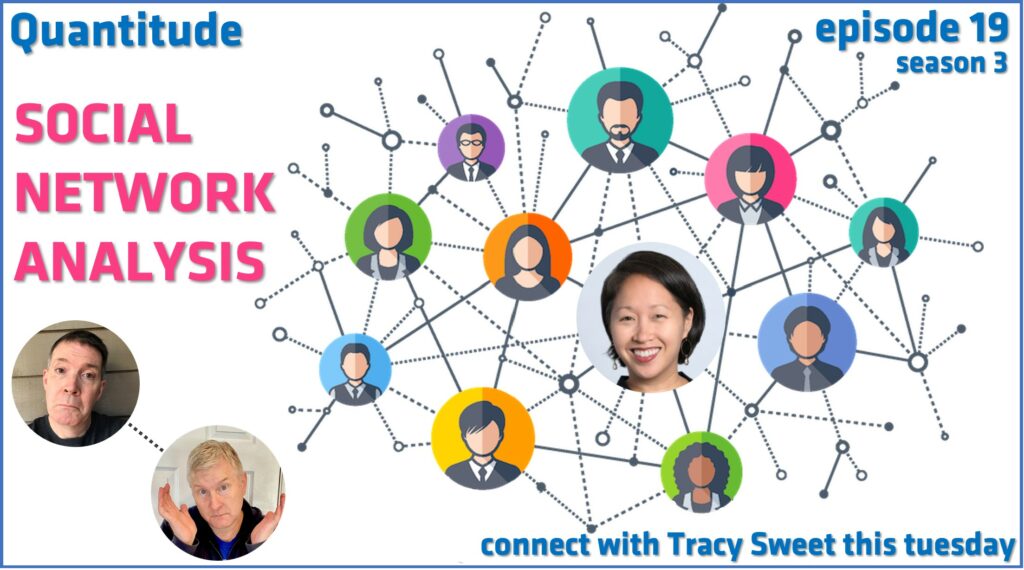In this week’s episode Greg and Patrick have a wonderfully engaging conversation with social network analysis expert Tracy Sweet who is an Associate Professor in the Department of Human Development and Quantitative Methodology at the University of Maryland. Tracy patiently helps us understand what social network analysis is, and how it can be used to better understand the complexities of human behavior. Along the way they also discuss sliding into DMs, fax machines, older millennials, baboons, too much math, inside voices, penguin data, swiping left, probation advice, unreciprocated social isolates, Wordle, the floss dance, power, and talking to your dog.
Additional Show Notes
Papers about latent variable models and latent space models:
Hoff, P. D., Raftery, A. E., & Handcock, M. S. (2002). Latent space approaches to social network analysis. Journal of the American Statistical Association, 97, 1090-1098.
Rastelli, R., Friel, N., & Raftery, A. E. (2016). Properties of latent variable network models. Network Science, 4, 407-432.
Dabbs, B., Adhikari, S., & Sweet, T. (2020). Conditionally Independent Dyads (CID) network models: A latent variable approach to statistical social network analysis. Social Networks, 63, 122-133.
Papers about social network models/social network analysis for psychology folks:
Sweet, T. M. (2016). Social network methods for the educational and psychological sciences. Educational Psychologist, 51, 381-394.
Broda, M. D., Granger, K., Chow, J., & Ross, E. (2021). Using social network analysis in applied psychological research: A tutorial. Psychological Methods. https://doi.org/10.1037/met0000451
Papers on Tracy’s research:
Hopkins, M., Ozimek, D., & Sweet, T. M. (2017). Mathematics coaching and instructional reform: Individual and collective change. The Journal of Mathematical Behavior, 46, 215-230.
Sweet, T. M. (2015). Incorporating covariates into stochastic blockmodels. Journal of Educational and Behavioral Statistics, 40, 635-664.
Sweet, T. M. (2019). Modeling social networks as mediators: A mixed membership stochastic blockmodel for mediation. Journal of Educational and Behavioral Statistics, 44, 210-240.
Sweet, T. M., Thomas, A. C., & Junker, B. W. (2013). Hierarchical network models for education research: Hierarchical latent space models. Journal of Educational and Behavioral Statistics, 38, 295-318.

